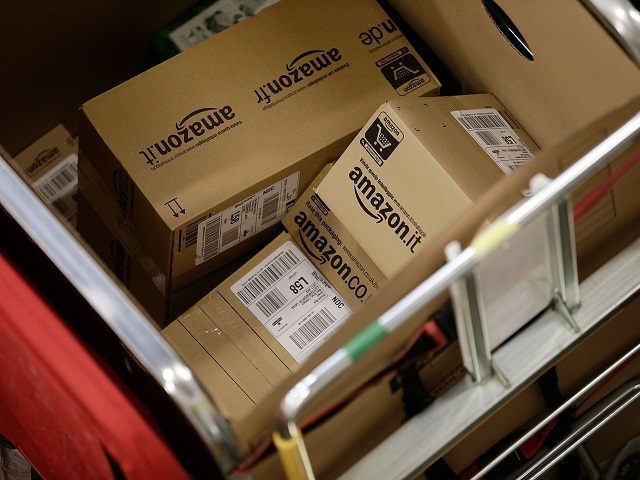The final $1.1 trillion spending bill being negotiated in Congress will be a massive 1,000+ page of legislation that few people will read. In addition to funding government through next year, the must-pass bill is likely to contain dozens of provisions that would otherwise be difficult to pass.
Two leading Republicans are pushing to include legal changes that would force on-line retailers to collect local and state sales taxes. “I’m really optimistic on this one,” Utah Rep. Jason Chaffetz told CQ Roll Call. “It’s up to the appropriators now.”
Chaffetz and Tennessee Sen. Lamar Alexander are lead sponsors of legislation that would overturn a 1992 Supreme Court case and allow state and local governments to force on-line retailers to collect sales taxes on purchases made by consumers. The on-line retailers would then pass these taxes onto the consumers’ local and state governments.
There are currently around 10,000 sales tax jurisdictions in the nation. This number is up 300 in just the last four years.
“The current tax loophole skews the free market,” Chaffetz said in July. “It allows businesses that employ fewer people and contribute to the economies of fewer states to avoid collecting sales taxes.”
The “tax loophole” Chaffetz refers to is the U.S. Constitution.
The Supreme Court ruled in 1992 that businesses can be forced to collect sales taxes only if they have a physical presence within the jurisdiction levying the tax. The case involved the Quill Corporation, a mail-order company selling office supplies.
The Court has ruled for decades that the sales tax, and the obligation to collect it, had to be related to costs incurred by the public that supported the transaction. For example, a brick-and-mortar retailer benefits from public roads that allow consumers to access a store, as well as police and fire protection for its property.
An out-of-state catalogue company, or an on-line retailer, doesn’t rely on any of these services provided by state and local governments. The obligation to collect sales taxes from jurisdictions where it has no relationship other then customers, then, would put an uncompetitive burden on these out-of-state retailers.
Such an obligation would also create a separate and unequal sales tax system in this country. Brick-and-mortar retailers do not have to collect sales taxes based on where their customers live, only where their store is physically located. On-line merchants, however, would have to comply potentially with all 10,000 sales tax jurisdictions in the country.
The Court ruled in 1992, however, that Congress could pass federal legislation obligating on-line retailers to collect the tax. Since the ruling, state and local governments have worked collectively to simplify and streamline their sales taxes to reduce the burdens for collection. The National Governors Association, which Sen. Alexander chaired when he was a Governor, has taken a lead role in these efforts.
After more than two decades of work, nothing meaningful has been agreed upon. In fact, the number of jurisdictions that levy a sales tax, and the myriad exceptions to it, have only increased.
Despite the efforts of Chaffetz and Alexander, it isn’t clear there is enough time to fold such a massive change in national tax policy into the omnibus spending bill. That said, the effort isn’t likely to go away anytime soon. Forcing on-line retailers to collect sales taxes remains a top lobbying priority for the National Retail Federation.
This Christmas season, Black Friday sales at traditional brick-and-mortar retailers disappointed, while on-line retailers booked their biggest sales ever. The dramatic shift to on-line, and now mobile, sales is becoming a significant portion of consumer sales, rather than just a fast-growing component of overall sales. It isn’t hard to imagine a time that most consumer shopping is done on-line or through their phone.
The growth of mobile sales, in fact, makes it even more difficult to transfer sales tax collection obligations onto an on-line retailer. People increasingly have phone numbers not directly tied to where they actually live. Which sales tax regime would apply?
State and local governments believe they are “losing” money when on-line retailers don’t collect sales taxes owed by their constituents. That may be true, but only if one believes that these governments are due a cut of every commercial transaction undertaken by their citizens.
The state and local sales tax is a 19th century institution that may not be able to adapt to a 21st century economy.

COMMENTS
Please let us know if you're having issues with commenting.